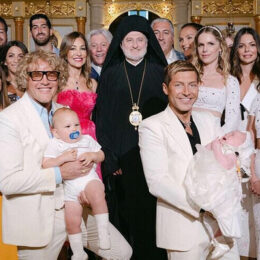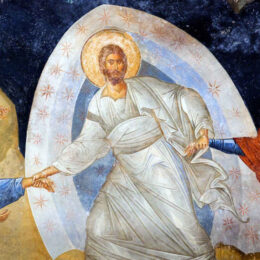National Catholic Reporter John L. Allen Jr. November 24, 2006
When Pope Benedict XVI travels to Turkey Nov. 28-Dec. 1, he faces a series of challenges that, like concentric circles, become larger and more daunting as they’re arranged around one another. Coupled with the intense media attention the trip is certain to draw — more than 2,000 journalists are expected to follow the pope on his first visit to a majority Muslim state — these complexities make Turkey the trickiest high-wire act of his pontificate to date.
Benedict is scheduled to make stops in Ankara, Ephesus and Istanbul. Among the conundrums awaiting him:
- How to reassure Muslims that he’s a friend of Islam, especially in the wake of his controversial Sept. 12 comments at the University of Regensburg, quoting a 14th-century Byzantine emperor to the effect that Muhammad brought things “only evil and inhuman”? Benedict won’t have to wait long; on the first day of the trip, he meets Ali Bardakoglu, Turkey’s top religious affairs director, who called the Regensburg remarks “regrettable and worrying … both for the Christian world and for the common peace of humanity.”
- How to encourage moderate Muslim voices in Turkey, a country often seen as the best hope for dialogue with the Islamic world, without inadvertently reinforcing either of two contrary forces: on the one hand, a rising tide of Islamic fundamentalism sometimes linked to nostalgia for the Ottoman Empire; and on the other, the rigid secularization associated with the modern founder of Turkey, Kemal Atatürk, who attempted to suppress virtually every public expression of Islam?
- What, if anything, to say about the dire situation facing Turkey’s small Christian communities, such as the forced closure of the seminaries of the patriarchate of Constantinople and the Armenian Orthodox church? If the pope is perceived as confrontational, it could further sour relations with Muslims, especially given the bitter history in Turkey of foreign powers demanding special treatment for Christians. Yet the original purpose of Benedict’s visit was to reinforce ecumenical relations with the Orthodox, especially the Patriarch of Constantinople Bartholomew I, and it’s difficult to imagine that the pope can remain silent on the issue of religious freedom.
- What, if anything, to say about Turkey’s candidacy for the European Union — a move which then-Cardinal Joseph Ratzinger had opposed prior to his election as pope, on the grounds that it would further muddy Europe’s Christian identity? (Ironically, the more radical Muslim forces in Turkey, which Benedict wants to discourage, are the most likely to be Euro-skeptics.)
- What, if anything, to say about the decimation of Turkey’s Armenian population in the early 20th century, which Armenians recall as “genocide,” a term bitterly contested by Turks? Especially when Benedict meets the Armenian Patriarch in Turkey, Mesrob II, on Nov. 30, it will be a tough question to avoid.
- What, if anything, to say about the delicate situation on Cyprus, where an unrecognized Turkish regime controls the northern portion of the island? On Nov. 10, Benedict met with President Tassos Papadopoulos, who governs the Greek-dominated (and therefore predominantly Christian) portion of Cyprus, receiving a collection of photos from Papadopoulos showing Christian churches in the north that have been destroyed or converted into mosques, bars and hotels. The meeting was widely seen in Turkey as a pro-Greek gesture, and it raised expectations that Benedict may address the Cyprus question during the trip.
Beyond these challenges, one final unknown hovers in the form of security considerations. In perhaps the most ominous premonition, a potboiler novel published in Turkey over the summer titled Papa’ya suikast (“Attack on the Pope”) predicted that Benedict will be assassinated while in Turkey. Written by novelist Yücel Kaya, the book is subtitled, “Who will kill Benedict XVI in Istanbul?”
. . . more




Let us pray for a successful trip by Pope Benedict, who sets out on an incredibly important and extremely challenging mission. The Pope must speak out in defense of the rights of Christians living in Islamic majority countries, but at the same time must not alienate the Turks so as to push them into the arms of radical Islamists. It’s a very tricky situation.
The ideal scenario would be one in which Turkey embraces a future as a modern, secular and pluralistic nation, less nationalistic and more accepting of on religious and ethnic minorities, tied to the West through the lucrative bonds of trade and commerce. The most undesirable scenario is one where petty insults and reckless comments alienate the Turks and fan the flames of religious intolerance and nationalistic hysteria.
I get the impression that there is a more cultured and educated element in Turkey that values the rich multi-ethnic diversity that existed in Turkey before Kemal Attaturk and his introduction of an ideology based on intense Turkish nationalism. However two groups are threats to this progressive pluralistic attitude.
The Islamists fear and resent anything Western. The Turkish military fears that too much democracy could give the Islamists the opportunity to get the upper hand and overturn the secular nationalism introduced by Attaturk. The Islamists seek popularity by demagoguing against Western infidels, while the nationalists seek popularity by attacking foreign threats, real and imagined, to Turkish nationhood. European Christians qualify as both.
For this reason I think it’s important to remove pretexts for conflict on our side, so we can begin addressing the problems on their side. This means reolving the Cyprus situation. Certainly one can appreciate the pain and anguish of Greek Cypriots who have seen their homes stolen and churches desecrated on the northern side of the island. But the only way there will ever be a resolution is to accept the bizonal solution demanded by the Turks. That is their line in the sand and they are never going to budge. So the Greek Cypriots should be seeking fair compensation for their losses, rather than an unrealiatic reversal of the status quo, which is never going to happen.
From a political perspective, I think the Turkish military is right. Democracy is value-neutral. Hitler and Mussolini rose to power through democracy. Radical Islam can also rise to power through democracy. Robert Kaplan’s book, The Coming Anarchy, has an excellent argument against the ‘democracy as panacea’ philosophy.
Interestingly, I’ve heard many citizens in Turkey fear entering the European Union, because that means they have to submit to the new God of diversity. They cannot understand why Europe is so soft on these radical enclaves sprouting up in their countries. Remember that 9/11 ringleader M. Atta became a radical while studying in the heart of Europe.
The examples of radical Islam present in Britain and Germany are much less prevalent in Turkey. A woman cannot wear her head scarf to her federal workplace in Instanbul, while in Britain, Tony Blair’s wife says the head scarf is ‘a victory against prejudice’. Sorry, but I don’t buy it. People say diversity is our strength. I say it’s E Unum Pluribus. Since when was squabbling, infighting, and divided loyalty a strength? Racial, religious, and national ties will always mean more to people outside the West. Always. Diversity was on full display during the Paris riots last year. This is what many average Turks understand and what many average Westerners refuse to see.
After the head scarf ruling, Mrs. Blair said it was a great good to ‘preserve their identies and values’. I think she should take a step back and see what those values originate from.
Religiously speaking, they historically run counter to those in the West. I think we could learn much from what happened to Constantinople. It was taken from Christianity by Islam, after all. So, I’m not getting my hopes up about the rights of Christians. I wish that instead of removing our pretexts, we start listing our grievances. If it descended into a fight, maybe that wouldn’t be a totally bad thing.
I’d love to have peace and prosperity, but not the type of peace in Instanbul 1454, and not the type of prosperity of Europe 2006 where churches are beautiful tombs.